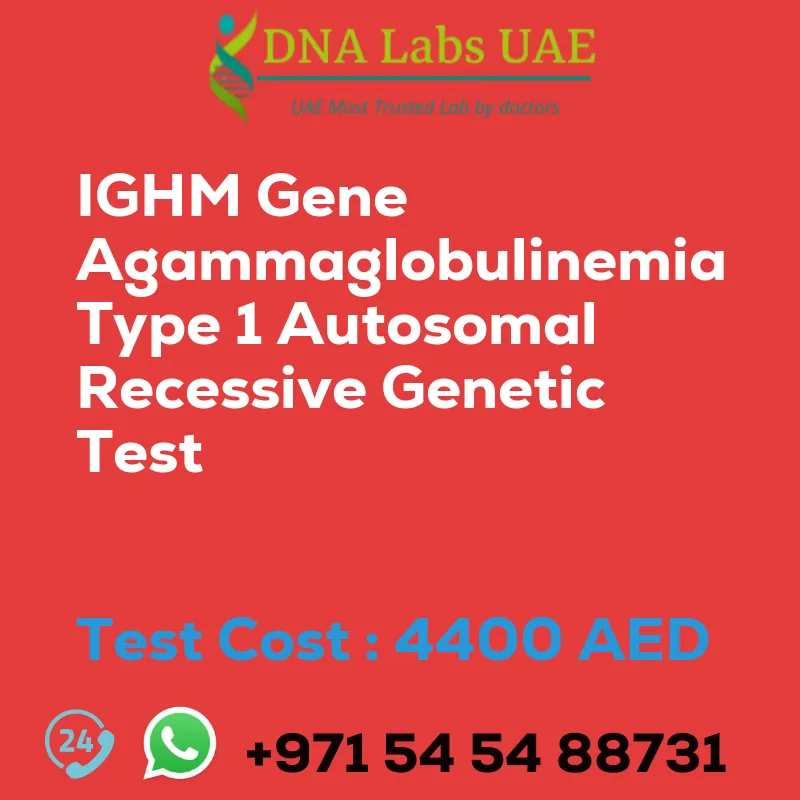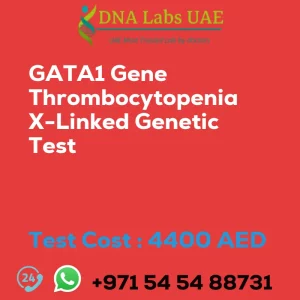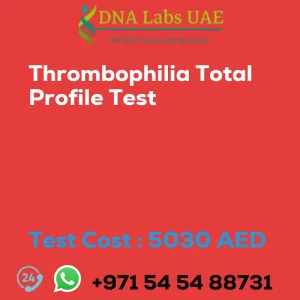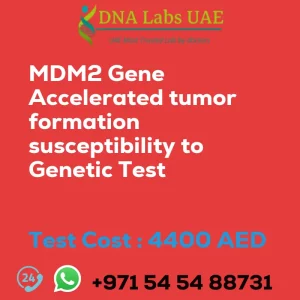IGHM Gene Agammaglobulinemia type 1 Autosomal Recessive Genetic Test
Genetic testing plays a crucial role in diagnosing and understanding rare genetic disorders. One such disorder is agammaglobulinemia type 1, which is associated with mutations in the IGHM gene. In this blog, we will discuss the details of the IGHM Gene Agammaglobulinemia type 1 Autosomal Recessive Genetic Test offered by DNA Labs UAE.
Test Details
The IGHM gene, also known as immunoglobulin heavy constant mu (IGHM), is responsible for agammaglobulinemia type 1, a rare genetic disorder. This disorder follows an autosomal recessive inheritance pattern, meaning that both copies of the gene must be mutated for the disorder to be present.
The IGHM Gene Agammaglobulinemia type 1 Autosomal Recessive Genetic Test offered by DNA Labs UAE utilizes Next-Generation Sequencing (NGS) technology. NGS genetic testing allows for the simultaneous analysis of multiple genes, including the IGHM gene. This comprehensive analysis provides a more accurate diagnosis and can potentially identify other genetic variants contributing to the disorder.
Test Components and Price
The cost of the IGHM Gene Agammaglobulinemia type 1 Autosomal Recessive Genetic Test is AED 4400.0. The test requires a blood sample collected in a EDTA tube.
Report Delivery and Method
The report for the IGHM Gene Agammaglobulinemia type 1 Autosomal Recessive Genetic Test will be delivered within 3 to 4 weeks. The test utilizes NGS technology for analysis.
Test Type and Doctor
The IGHM Gene Agammaglobulinemia type 1 Autosomal Recessive Genetic Test falls under the category of Hematology. The test is conducted by a Hematologist.
Test Department and Pre Test Information
The IGHM Gene Agammaglobulinemia type 1 Autosomal Recessive Genetic Test is conducted in the Genetics department. It is important to provide the clinical history of the patient who is undergoing the test, particularly if they have been diagnosed with BLNK Gene Agammaglobulinemia type 1, another autosomal recessive disorder. Additionally, a genetic counseling session may be conducted to draw a pedigree chart of family members affected by the IGHM Gene Agammaglobulinemia type 1 Autosomal Recessive Genetic Test.
Significance of the Test
The IGHM Gene Agammaglobulinemia type 1 Autosomal Recessive Genetic Test is crucial in confirming a diagnosis of agammaglobulinemia type 1 and guiding treatment decisions. It can also be used for carrier testing in individuals with a family history of the disorder, helping them make informed decisions about family planning.
Overall, NGS genetic testing for agammaglobulinemia type 1 provides valuable information about the genetic basis of the disorder. It aids in diagnosis, treatment, and genetic counseling, ensuring better management of the condition.
| Test Name | IGHM Gene Agammaglobulinemia type 1 autosomal recessive Genetic Test |
|---|---|
| Components | |
| Price | 4400.0 AED |
| Sample Condition | Blood EDTA Tube |
| Report Delivery | 3 to 4 Weeks |
| Method | NGS Technology |
| Test type | Hematology |
| Doctor | Hematologist |
| Test Department: | Genetics |
| Pre Test Information | Clinical History of Patient who is going for BLNK Gene Agammaglobulinemia type 1, autosomal recessive NGS Genetic DNA Test. A Genetic Counselling session to draw a pedigree chart of family members affected with IGHM Gene Agammaglobulinemia type 1, autosomal recessive NGS Genetic DNA Test gene IGHM |
| Test Details |
IGHM gene, also known as immunoglobulin heavy constant mu (IGHM), is associated with a rare genetic disorder called agammaglobulinemia type 1. This disorder is inherited in an autosomal recessive manner, meaning that both copies of the gene must be mutated for the disorder to be present. NGS (Next-Generation Sequencing) genetic testing is a powerful tool used to analyze multiple genes simultaneously. In the case of agammaglobulinemia type 1, NGS genetic testing can be used to identify mutations in the IGHM gene. This testing method allows for a comprehensive analysis of the gene, providing a more accurate diagnosis and potentially identifying other genetic variants that may contribute to the disorder. By identifying mutations in the IGHM gene, NGS genetic testing can confirm a diagnosis of agammaglobulinemia type 1 and help guide treatment decisions. It can also be used for carrier testing in individuals with a family history of the disorder, allowing them to make informed decisions about family planning. Overall, NGS genetic testing for agammaglobulinemia type 1 can provide valuable information about the genetic basis of the disorder, aiding in diagnosis, treatment, and genetic counseling. |








